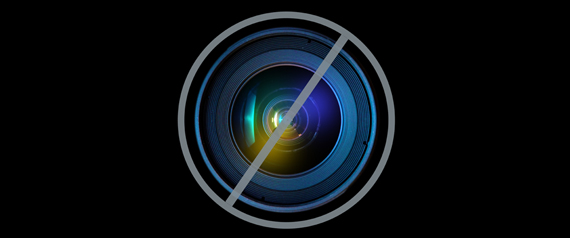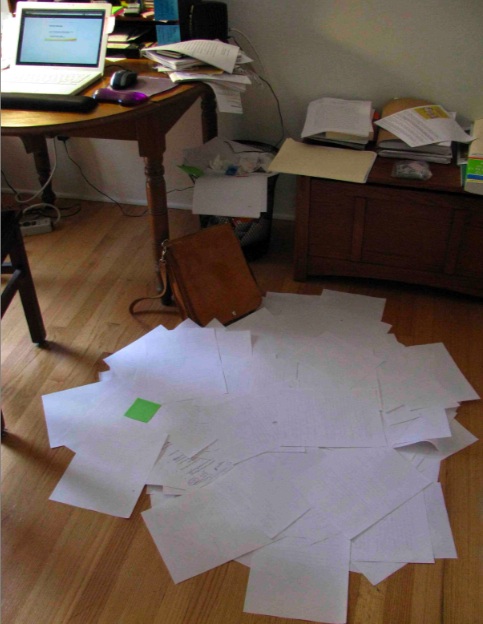Mark Hyman, MD: Why You Don't Have To Be Overweight To Be Unhealthy
In a shocking new study published online in Pediatrics, researchers found that from 2000 to 2008, the number of teenagers aged 12 to 19 with pre-diabetes or diabetes increased from 9 percent to 23 percent.
Yikes. One in four kids have either pre-diabetes or diabetes -- what I like to call diabesity. How did this happen?
Just 15 years ago, less than 3 percent of new cases of childhood diabetes were Type 2 (or what we used to call adult onset). Now, it is nearly 50 percent of all new cases of diabetes in kids.
In this study of 3,383 children, aged 12 to 19, the most shocking finding was not just the exploding rates of pre-diabetes and Type 2 diabetes in children, which alone should make us all stop whatever we are doing and become health activists. It was the fact that 13 percent of kids of normal weight were either pre-diabetic or diabetic.
We need to stand up in our homes, communities and schools and create healthy environments for kids. We need to take back our kids' taste buds, our kitchens and our homes, which have been hijacked by the food industry, and ban anything except real food.
We need to lobby to change food marketing to kids, tax soda, limit access to junk food in our schools and neighborhoods and protect our children, their future, our global economic competitiveness, and our national security.
Sick kids have been shown to have an achievement gap, doing less well in school and throughout their lives. And a full 75 percent of military recruits are not fit to serve.
Calls for more exercise will be heard because no one opposes more exercise. It doesn't decrease profits for anyone! But a kid would have to run four miles a day for one week to burn off one fast food meal. You can't exercise your way out of a bad diet.
Michelle Obama's laudable initiative should not be called "Let's Move," it should be called "Let's Eat Real Food." The food industry needs to be called to task, exposed and severely regulated to halt this epidemic.
Better to have a nanny state than a failed state crippled by the costs of obesity and diabetes with a population that is sick and disabled. When one in three Medicare dollars is spent on Type 2 diabetes, and we will spend $3.4 trillion over the next 10 years to treat pre-diabetes and Type 2 diabetes, incremental changes will not suffice.
Personal responsibility is not the answer. Is a 6 year old with a fatty liver, diabetes and high blood pressure to blame for his or her condition?
Yes, the explosion of obesity, pre-diabetes and diabetes in kids is a national crisis. But something else was even more troubling to me in this study. Something that is not in the media reports, but I found it in the fine print in the study.
It was this.
The kids who were normal weight also had higher rates of diabetes and cardiac risk factors. In fact, a full 37 percent of normal-weight kids had one or more cardiovascular risk factors, such as high blood pressure or high cholesterol. Ponder this. Of the skinny kids:
- 18 percent had elevated blood pressure
- 13 percent had elevated blood sugar (pre-diabetes or diabetes)
- 10 percent had elevated cholesterol
But isn't being overweight the cause of high blood pressure, high cholesterol and diabetes? Well yes. But here's the rub. You don't have to be overweight to have high blood pressure, high cholesterol, pre-diabetes or diabetes.
This is as true for adults as it is for children. While most of those overweight in this country have diabesity (pre-diabetes or diabetes), which is what actually causes high blood pressure and cholesterol, so do 40 percent of the skinny people.
They are in fact skinny fat people. They are normal weight but metabolically obese with all the same risks of disease and death as the obese. I was just shocked to see this was true in kids as well. One in seven normal weight kids has pre-diabetes or Type 2 diabetes.
How does this happen? It is not just too many calories. It is about the type, quality and source of those calories.
The single biggest myth held fast by physicians, nutritionists, government bodies and the media (as was shown clearly in the recent HBO special The Weight of the Nation, co-sponsored with the Institute of Medicine, National Institutes of Health, the Center for Disease Control and Prevention), is that all calories are created equal.
Just eat less and exercise more. Balance calories in/calories out. It is just physics -- who can argue with Newton and the first law of thermodynamics?
Biology is more complex. In a vacuum all calories are the same. Burn 1,000 calories of Oreo cookies and 1,000 calories of broccoli in a lab and they release the same amount of energy. So they are the same, right? True, but only in a vacuum; not when they are processed by your metabolism.
In fact, food contains not just calories; more importantly, food contains information that controls dozens of hormones, thousands of genes and tens of thousands of protein networks that control everything from your appetite to the rate of fat burning or storage to cholesterol synthesis and more.
The food industry has created secret combinations of sugar, fat and salt in junk food that trigger biological addiction -- which is why you "can't just eat one" potato chip, but you can easily just eat one serving of broccoli. Who binges on asparagus? But almost everyone has eaten a whole bag of cookies.
The quality of the food you eat is critically important, independent of the calories. Eating junk will put on junk around your middle -- even if it is invisible. We call the fat inside your belly "VAT" or visceral adipose tissue.
And even if you are normal weight, as was the case for many of these children in the study, you can have pre-diabetes or diabetes. You become a skinny fat person.
A surgeon friend of mine recently told me that even in people of normal weight, he found bellies full of fat -- caked around their colon, liver, kidneys, and draped over all their organs. This is caused by our industrial diet full of high fructose corn syrup, added sugars, trans fats, flour and processed food.
The average American eats 29 pounds of French fries, 23 pounds of pizza, 24 pounds of ice cream and consumes 53 gallons of soda, 24 pounds of artificial sweeteners, 2.736 pounds of salt and 90,700 milligrams of caffeine per year. Do we really think we can create health in that toxic environment?
That is why we need to "unjunk" our food, and particularly our children's food. Yes, it is horrible that in less than a decade we have gone from one in 10 kids to almost one in four kids with pre-diabetes or diabetes. Even the skinny kids are affected because of the toxic industrial food-like substances that provide too much energy and not enough good information.
But here's the problem. We don't have a coordinated national effort, nor do our elected officials have the political willpower to buck the food industry lobby and protect our children.
In a recommendation issued in 2010, the US Preventive Services Task Force proposed to screen children aged older than 6 years for obesity and refer them to comprehensive, moderate to intense behavioral interventions for weight control.
There are two glaring problems with this strategy. First, there are no places to refer these patients because most doctors know almost nothing about nutrition and lifestyle. And our health care system does not have any infrastructure or systems for comprehensive lifestyle interventions.
And second, if kids change and their environment doesn't they will fail. If they go home to staples of soda, donuts and frozen pizza, and they go to schools with deep fryers and microwaves and walls of junk food, and they live in neighborhoods with convenience stores and fast food outlets but no vegetables or fruit in sight, and their parents don't know how to cook or teach them how to care for their bodies, how can they succeed?
And if getting together to play with friends means games on Facebook, any lifestyle intervention will fail.
Obesity is contagious. It is a social disease. But health is also contagious and we need to start infecting our communities and neighborhoods with health. I encourage each of you to be health activists.
We can't wait for anyone else to solve this problem -- not government or corporations. We need to democratize and decentralize health.
Each of us can make changes in the circle of our own lives where we live, eat, learn, work, play and pray. I have created a simple website for us all to share our collective intelligence on how to solve this: www.takebackourhealth.org.
Share what you are doing in your homes, in your schools, at work or in our democracy to take back our health -- collectively we can solve this. Our children are depending on us!
Now I'd like to hear from you...
What have you done to create a healthy environment for the children in your community?
Do you know what your children are eating at school or do you pack a healthy lunch for them?
Have you taught your children to eat healthy and how to cook with real food ingredients?
Please leave your thoughts by adding a comment below.
To your good health,
Mark Hyman, M.D.
Mark Hyman, M.D. is a practicing physician, founder of The UltraWellness Center, a four-time New York Times bestselling author, and an international leader in the field of Functional Medicine. You can follow him on Twitter, connect with him on LinkedIn, watch his videos on YouTube, become a fan on Facebook, and subscribe to his newsletter.
For more by Mark Hyman, M.D., click here.
For more on personal health, click here.
Follow Mark Hyman, MD on Twitter: www.twitter.com/markhymanmd
FOLLOW HEALTH AND FITNESS
Source: www.huffingtonpost.com
 A corollary myth is that women's coverage costs more because of maternity coverage. Not so. According to the National Women's Law Center, almost 90 percent of policies exclude maternity coverage altogether. They don't provide it at any cost.
A corollary myth is that women's coverage costs more because of maternity coverage. Not so. According to the National Women's Law Center, almost 90 percent of policies exclude maternity coverage altogether. They don't provide it at any cost.
 Individualism is American. We're do-it-yourselfers. We resist working collaboratively for fear that we will lose track of what's mine or not get appropriate credit.
Individualism is American. We're do-it-yourselfers. We resist working collaboratively for fear that we will lose track of what's mine or not get appropriate credit. To achieve something big or long-term, you need a step-by-step plan to which you hold yourself accountable. That works.
To achieve something big or long-term, you need a step-by-step plan to which you hold yourself accountable. That works.
